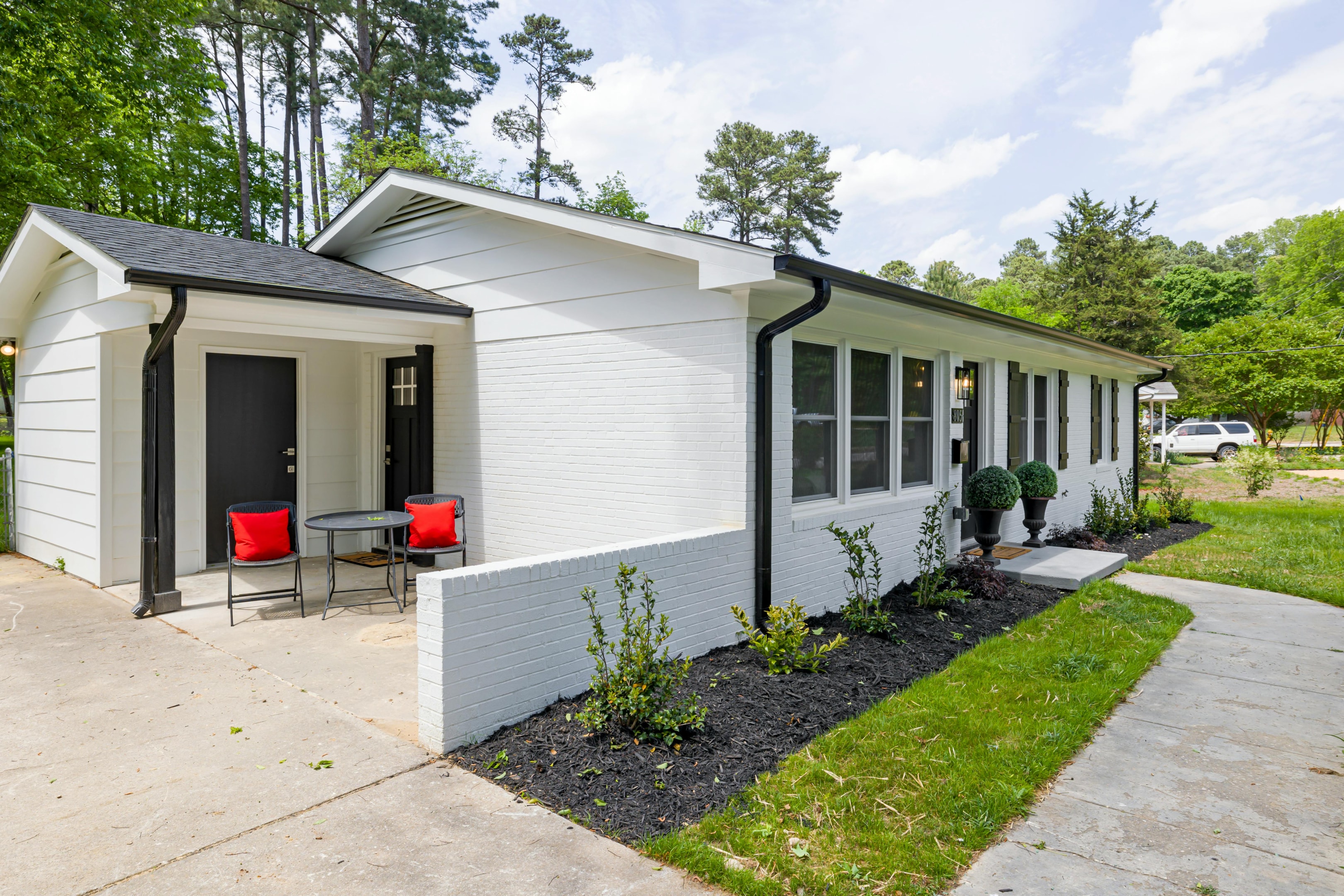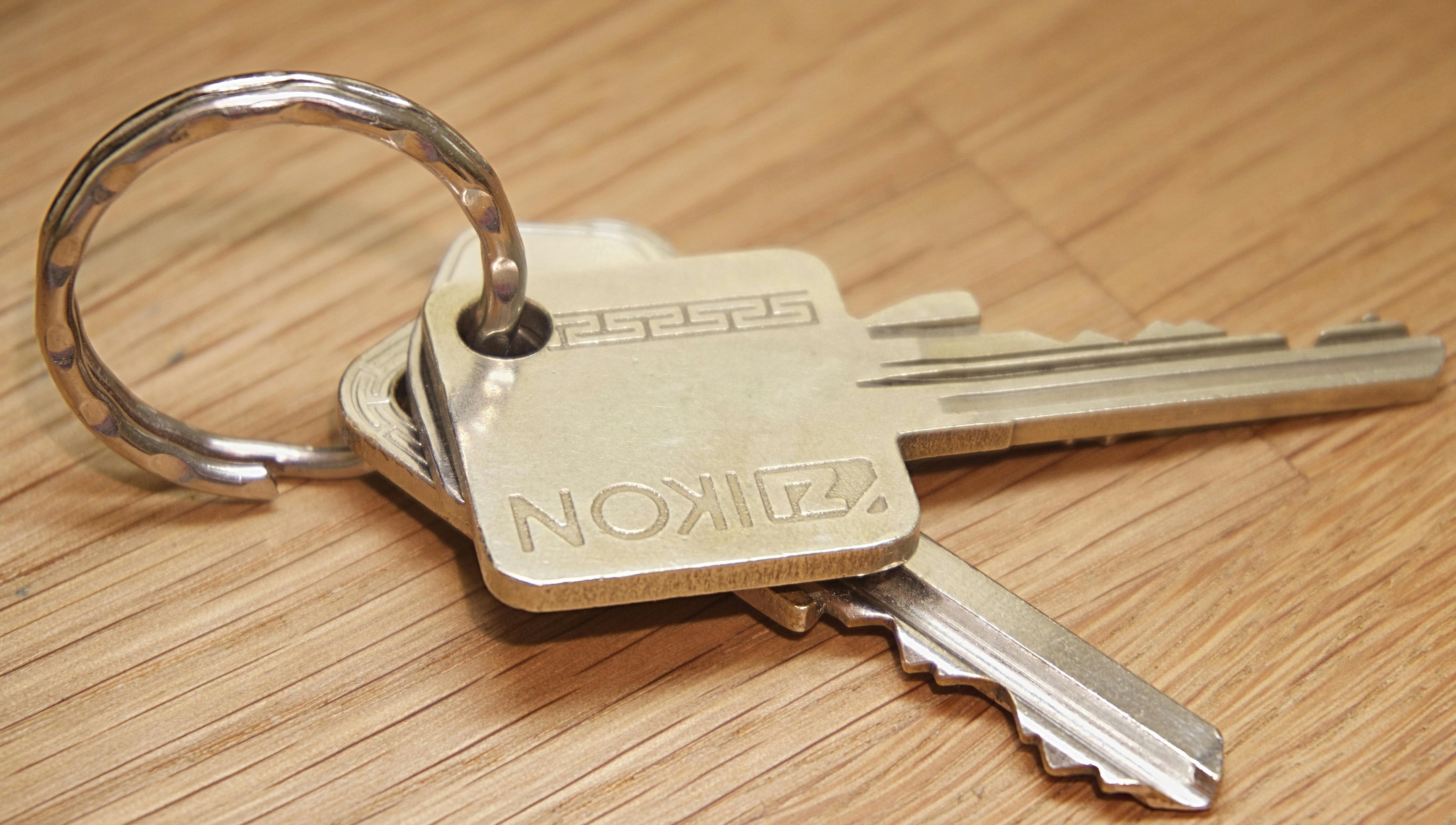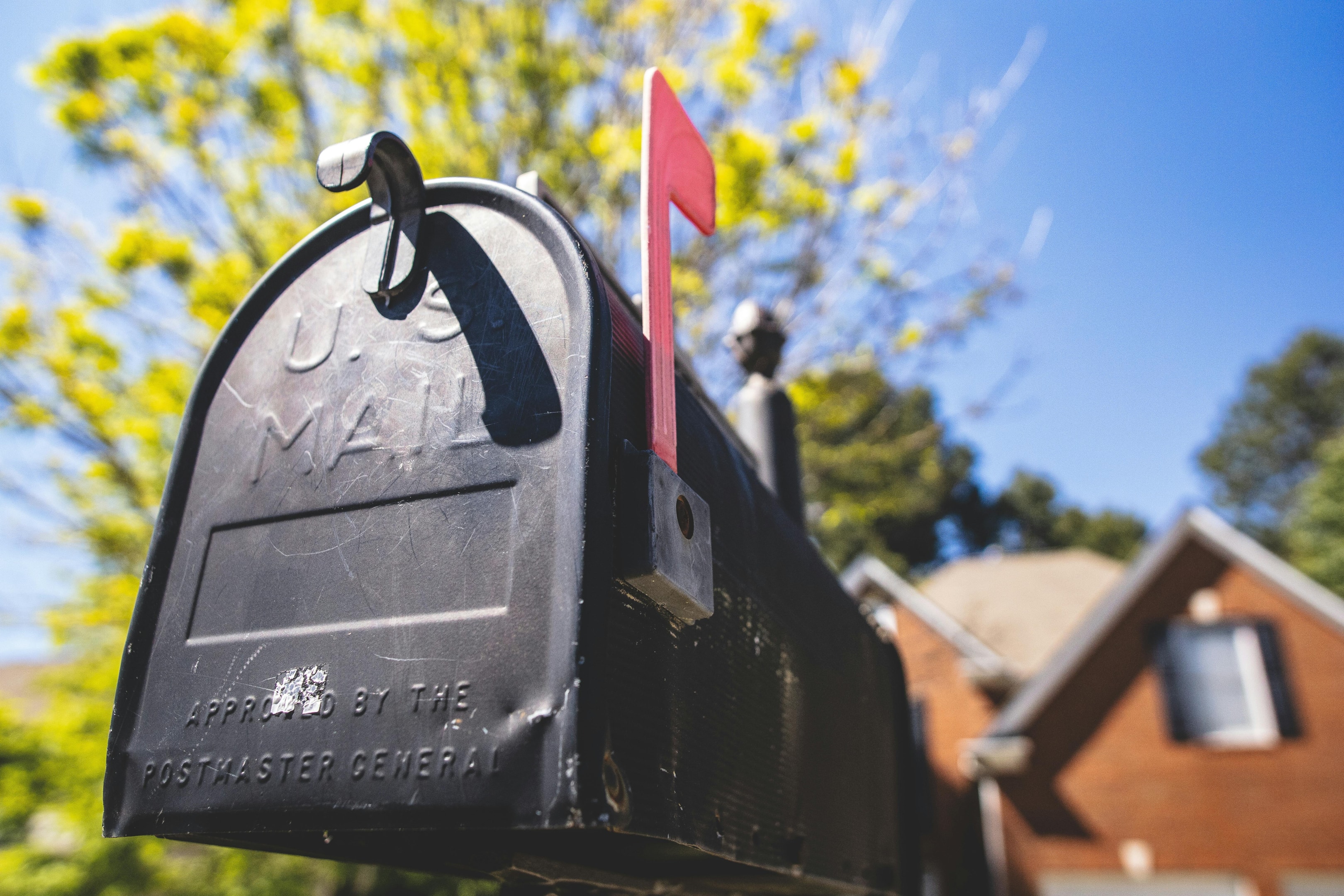Probate for Sale: A Complete Guide to Buying Probate Real Estate
Investing in probate properties can be a highly profitable strategy for real estate investors and homebuyers looking for discounted properties. Probate real estate sales often involve motivated sellers, reduced competition, and opportunities to purchase homes at below-market prices. However, the process can be complex, requiring patience, legal understanding, and a strategic approach.
A probate listing is a specific type of property sale that occurs during the probate process after the owner's death. These listings involve court oversight to ensure fair distribution of the estate's assets and highlight the legal requirements and steps involved in initiating and completing the sale.
In this guide, we'll walk you through everything you need to know about probate real estate sales—from understanding probate properties to finding deals, navigating the legal process, and closing successful transactions.

Introduction
Many investors and homebuyers overlook probate properties, assuming they're difficult to buy. However, probate real estate sales can be some of the best opportunities to acquire properties at below-market prices. These properties often belong to an estate after the homeowner passes away, and the heirs may be motivated to sell quickly.
It is important to notify family members about the sale and involve them in the process, as they must be given an opportunity to comment on its terms. This guide will break down the probate process, how to find probate homes, and how to navigate legal and financial considerations when buying probate real estate. To learn more about investing in these types of properties, read The Essential Guide to Investing in Probate Real Estate.
Understanding Probate Real Estate
Definition of a Probate Sale in Real Estate
A probate sale in real estate refers to the process of selling a deceased person's property through the probate court. This type of sale occurs when the deceased person did not leave a will or clear instructions for the distribution of their assets. The probate court oversees the sale to ensure that the property is sold at a fair price and that the proceeds are distributed according to the law. This legal process ensures that all debts and taxes are paid before the remaining assets are distributed to the rightful heirs. Probate sales can offer unique opportunities for buyers, but they also come with specific legal requirements and procedures that must be followed.
When is a Probate Sale Needed?
A probate sale is necessary when a property owner dies without a will or clear instructions for the distribution of their assets. In this situation, the probate court must intervene to ensure that the property is sold and the proceeds are distributed fairly among the heirs or beneficiaries. A probate sale may also be necessary if the deceased person's will is contested or if there are disputes among the heirs. The court's involvement helps to resolve these disputes and ensures that the property is sold in a manner that is fair and transparent. This process can be complex and time-consuming, but it is essential for ensuring that the deceased person's wishes are honored and that the heirs receive their rightful inheritance.

What Does Probate Mean in Real Estate?
Probate is the legal process of distributing a deceased person's assets, including their real estate. If the deceased did not have a will, the court oversees the property sale to settle debts and distribute assets to heirs. A probate sale works by following a step-by-step process that includes court approval, property appraisal, listing the property, and finalizing the sale, all while adhering to specific legal requirements.
How Properties End Up in Probate
Properties end up in probate when:
The deceased did not leave a will (intestate).
There are multiple heirs, and the estate must be legally settled.
The heirs decide to sell the property rather than keep it.
How the Probate Process Works in Real Estate
Steps in the Probate Process
The executor is appointed and given authority over the estate.
Property is appraised to determine its market value.
Debts and taxes are paid from the estate's assets.
The probate court approves the sale of the property.
Buyers make offers, and the property is sold to settle the estate.
Probate sales work by following these unique steps, which differ from standard homebuying processes due to the involvement of the probate court and the need to distribute the deceased person's assets to beneficiaries.
How Long Does Probate Take?
Probate sales can take several months to over a year, depending on legal complexities.

Pros and Cons of Buying Through a Probate Sale
Buying a property through a probate sale can have both advantages and disadvantages. Some of the pros include:
Potential for lower prices: Probate sales can result in lower prices due to the urgency of selling the property.
Less competition: Probate sales often attract fewer buyers, making it easier to purchase the property.
Clean title: Probate sales typically involve a clean title, which can provide peace of mind for buyers.
However, there are also some cons to consider:
Time-consuming: The probate process can take months or sometimes even years to complete.
Uncertainty: The outcome of the probate process can be uncertain, and buyers may face delays or disputes.
Potential for liens: The property may have outstanding liens or debts that need to be paid off before the sale can be completed.
Understanding these pros and cons can help buyers make informed decisions when considering probate properties. Experience in probate sales can also provide valuable insights and assistance throughout the process. If you're looking for leads to start your journey of purchasing probate properties, read Finding Probate Leads: 7 Effective Strategies for Real Estate Investors.
Common Misconceptions About Probate Sales
There are several common misconceptions about probate sales:
Myth: The properties are always in poor condition. Reality: The quality of a home typically depends on how well the property owner cared for it and how long it has been unoccupied.
Myth: Probate sales are rare. Reality: Probate sales can be easily found in any market if you know where to look.
It's essential to work with a real estate attorney experienced in probate sales to navigate the process successfully. They can provide valuable guidance and help you avoid potential pitfalls. Additionally, it's crucial to understand the local probate court's rules and regulations to ensure a smooth transaction. By debunking these myths and working with knowledgeable professionals, buyers can take advantage of the opportunities that probate sales offer.

Who Can Buy Probate Real Estate?
Real Estate Investors Looking for Distressed Properties
Real estate investors are often on the lookout for distressed properties that can be acquired at a lower cost, making probate homes an attractive option. These properties are generally sold as is, which means they might require some renovation or repair work. Investors can purchase these probate properties at a discount, invest in necessary improvements, and then resell them at a higher market value, thereby making a profit. The probate process, while complex, can be navigated successfully by working with a real estate agent experienced in probate sales, who can provide insights into the best strategies for acquiring these properties.
First-Time Homebuyers Seeking Below-Market Deals
For first-time homebuyers, probate sales can present a unique opportunity to purchase homes at below-market prices. These properties often belong to an estate and are sold to settle debts or distribute assets among heirs. The urgency to sell can lead to reduced competition and more favorable pricing. However, buying a probate property requires patience and understanding of the legal process, which can be facilitated by collaborating with a knowledgeable real estate broker or agent. By doing so, first-time buyers can navigate the complexities of probate real estate transactions and secure a home at a competitive price.
Wholesalers Interested in Off-Market Properties
Wholesalers looking for off-market opportunities can find probate sales to be a lucrative avenue. These properties, often not widely advertised, can be secured at a lower price and then assigned to end buyers for a quick profit. The process involves identifying probate properties, negotiating terms, and leveraging networks of real estate agents, probate attorneys, and potential buyers. Wholesalers can gain an edge by understanding the probate process and the motivations of sellers, allowing them to facilitate smooth transactions and capitalize on the potential for rapid returns. To learn more about getting into real estate wholesaling, read Wholesaling Probate Leads: Best Practices for Real Estate Investors.
How to Find Probate Properties for Sale

Checking Public Probate Court Records
Probate court records are a valuable resource for investors and homebuyers interested in finding probate properties. These records are public information, allowing individuals to research probate cases at local courthouses. By examining these records, potential buyers can identify properties that are undergoing the probate process. This step can provide insights into available probate properties, the status of the legal process, and any potential issues that may need to be addressed. Understanding how to navigate these records efficiently can give buyers a competitive edge in locating probate properties before they hit the market.
Working with Probate Real Estate Agents
Collaborating with real estate agents who specialize in probate sales is an effective way to find probate properties. These agents have extensive knowledge of the probate process and can provide valuable insights into the best strategies for purchasing probate properties. They often have access to exclusive probate listings and can guide buyers through the complexities of probate transactions. Working with an experienced probate real estate agent can help buyers identify opportunities, negotiate favorable terms, and successfully close deals on probate properties.
Using USLeadList to Find Probate Properties
USLeadList is a powerful resource for real estate investors looking to discover probate properties. This platform specializes in providing comprehensive lists of probate leads, which can be a valuable asset for those seeking to invest in probate real estate. By leveraging USLeadList, users can access up-to-date information on properties that are currently going through the probate process, allowing them to identify potential deals before they hit the open market.
The service offers detailed data, including the property's location, estimated market value, and contact information for multiple family members of the deceased. This information can be instrumental in reaching out directly to heirs or executors, potentially leading to negotiations before the property is widely advertised. Utilizing USLeadList not only saves time but also increases the chances of finding probate properties with minimal competition. For investors and homebuyers aiming to capitalize on probate real estate opportunities, USLeadList serves as an essential tool in their strategy to secure profitable deals.
Using Direct Mail and Networking for Off-Market Probate Deals
Direct mail campaigns and networking are effective strategies for uncovering off-market probate deals. By sending personalized letters to heirs, executors, and personal representatives, buyers can express their interest in purchasing probate properties before they are publicly listed. Building relationships with probate attorneys and estate planners can also provide valuable leads on potential probate properties. Networking with local real estate agents experienced in probate sales can further enhance your chances of discovering off-market opportunities. These professionals often have insider knowledge and can alert you to properties that have not yet hit the market, giving you a competitive edge in securing a deal.

Common Challenges and Risks in Probate Sales
Purchasing probate properties can be an enticing opportunity, but it comes with its own set of challenges and risks that potential buyers need to be aware of. Understanding these challenges can help you navigate the probate process more effectively and make informed decisions.
Delays in the Probate Process
One of the primary challenges in probate sales is the potential for significant delays. Court approvals are mandatory for these transactions, and the legal process can be lengthy, often taking several months or even years to complete. This delay can be frustrating for buyers who are eager to close the deal and move forward with their plans. It's essential to have patience and be prepared for the possibility of an extended timeline. Working with a real estate agent experienced in probate sales can help manage expectations and navigate these delays more efficiently.
Legal and Title Issues to Watch Out For
Probate properties can sometimes come with legal and title issues that need to be resolved before the sale can be finalized. These issues might include outstanding liens, unresolved debts, or disputes among heirs that can complicate the transaction. Buyers must conduct thorough due diligence, including a comprehensive title search, to identify and address any potential legal hurdles. Engaging a probate attorney can be invaluable in navigating these complexities and ensuring a smooth transaction.
Overbidding at Public Probate Auctions
Another risk associated with probate sales is the potential for overbidding at public auctions. Probate sales can attract multiple bids from prospective buyers, driving up the price and potentially leading to an overpayment for the property. While the allure of securing a probate property can be strong, it's crucial to set a budget and stick to it, ensuring that you do not exceed the property's market value. A seasoned real estate broker or agent can provide insights into competitive bidding strategies and help you make informed decisions during the auction process.
By understanding and preparing for these common challenges and risks, buyers can better navigate the probate sale process and seize the opportunities it presents while minimizing potential pitfalls.
How to Profit from Probate Real Estate Investments
Fix-and-Flip Strategies for Probate Homes
Purchasing distressed probate properties can be a lucrative strategy for real estate investors. By acquiring these properties at a discounted rate, investors can renovate and enhance their market appeal, ultimately selling them for a profit. The key to success in this strategy lies in accurately assessing the property's potential, estimating renovation costs, and understanding the local real estate market dynamics. Working with a real estate agent experienced in probate sales can provide valuable insights into finding the right properties and negotiating favorable terms.
Buy-and-Hold for Long-Term Rental Income
Probate homes offer a unique opportunity for investors looking to build a portfolio of rental properties. By purchasing these homes, often at below-market prices, investors can renovate and lease them to generate a steady cash flow. This strategy not only provides regular income but also allows for potential appreciation over time. Understanding the local rental market and ensuring the property meets tenant needs are critical components of this approach. Engaging with a probate attorney can help navigate any legal complexities associated with the probate process.
Wholesaling Probate Properties for Quick Profits
Wholesaling probate properties involves finding probate homes, securing them under contract, and then assigning the contract to an end buyer for a profit. This strategy requires minimal capital investment and can yield quick returns. Successful wholesalers often leverage their network of real estate agents, probate attorneys, and potential buyers to identify lucrative deals and facilitate smooth transactions. By understanding the probate process and the motivations of sellers, wholesalers can effectively negotiate and close deals, making this a viable option for those looking to enter the real estate market.

Conclusion
Probate real estate offers a unique opportunity to buy properties at a discount, often with less competition than traditional sales. Whether you're an investor looking for fix-and-flip deals, a wholesaler seeking off-market leads, or a homebuyer searching for affordable homes, understanding how to navigate probate sales can give you a serious advantage. By using the right strategies, lead sources such as USLeadList, and negotiation techniques, you can make probate real estate a highly profitable investment strategy. To learn more about probate in real estate, read Probate Leads- What Are They and How To Use Them.
FAQs
1. How do I find probate properties in my local market?
Check public probate court records, work with probate agents, and network with attorneys.
2. Are probate properties always sold at a discount?
Not always, but motivated heirs often sell below market value for a quick sale.
3. How long does it take to buy a probate home?
It depends, but probate sales can take 3-12 months to finalize.
4. Do I need a lawyer to buy probate real estate?
It's not required, but having a probate attorney can help navigate legal complexities.
5. Can I finance a probate property purchase with a mortgage?
Yes, but cash buyers often have an advantage in probate sales.